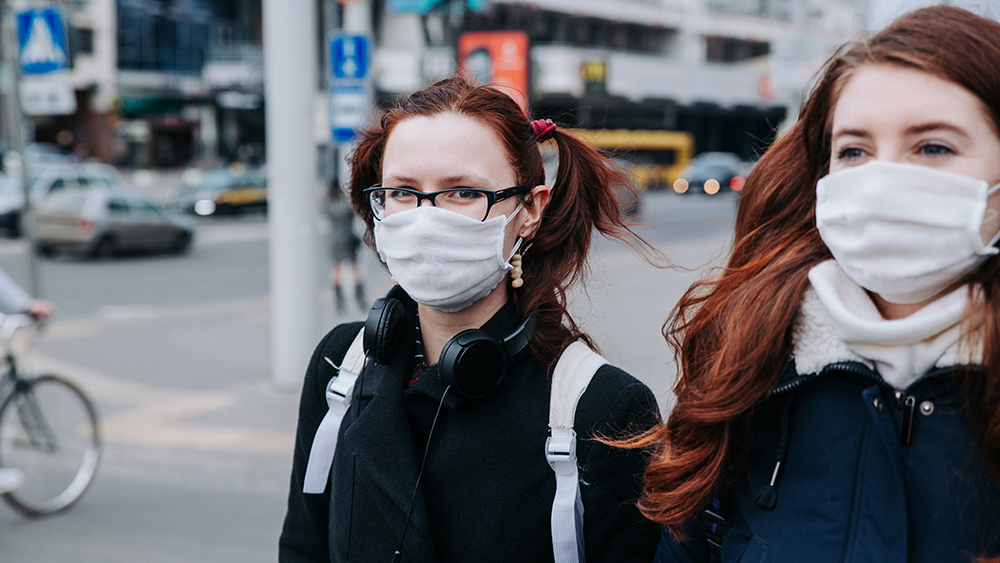More people have died from coronavirus than the official numbers suggest, NYT claims
04/26/2020 / By Ethan Huff

According to the official count, the world is right on the verge of breaching 200,000 deaths associated with the Wuhan coronavirus (COVID-19). But this number could be short by about 25,000, new data suggest.
As reported by The Week, numbers compiled by The New York Times show that an additional 25,000 deaths associated with the Wuhan coronavirus (COVID-19) have been overlooked because some people did not necessarily contract the virus, but rather it “impacted their health in other ways.”
The Times reportedly looked at the recent mortality data from 11 different countries, observing that more people have died in these countries compared to previous years. But the official death count associated with the Wuhan coronavirus (COVID-19) only accounted for a very small portion of these additional deaths.
Spain, for instance, saw 7,300 more deaths than usual between March 9 and April 5, while New York City saw its normal death rate almost quadruple during roughly this same period of time. Based on this, the Times concluded that about 25,000 more people than what is being reported have died during this pandemic.
“Many thousands more people have died in Europe this year compared with a normal year,” the Times tweeted. “But deaths officially attributed to Covid-19 account for just a fraction of the increase, suggesting many more died from the virus than have been counted.”
Listen below to The Health Ranger Report as Mike Adams, the Health Ranger, discusses how the antibody tests for the Wuhan coronavirus (COVID-19) are producing a very high number of false positives:
Collecting mortality data during a pandemic “is not perfect,” admits the Times
The only way to explain these abnormally high death counts, according to the Times, is to link them to the Wuhan coronavirus (COVID-19). The Times also contends that its findings “undermine the notion that many people who have died from the virus may soon have died anyway.”
In some cases, people may have died because they refused to, or could not, go to a hospital for treatment. Others may have had pre-existing health conditions that they were used to dealing with, but that the Wuhan coronavirus (COVID-19) unexpectedly exacerbated resulting in early death.
“Mortality data in the middle of a pandemic is not perfect,” the Times also admits, adding that limited testing may also be to blame for these potential undercounts.
Similar undercounts are believed to have occurred in communist China, which for months was accused of burying data on the true number of deaths associated with the Wuhan coronavirus (COVID-19).
Back in late February, we reported that the Chinese state media was finally coming around to admit that there was a discrepancy between the death count being publicly reported versus the death count being privately recorded.
It was estimated at the time that communist China was lying about the death count using a factor of 50. In other words, for every 50 actual deaths that were recorded, the communist Chinese regime was only reporting one death publicly.
In the United States, the official death count associated with the Wuhan coronavirus (COVID-19) has reportedly breached 50,000, while the case total globally is nearing three million.
Currently, the U.S. has more than three times the number of confirmed cases than any other country in the world, despite the fact that countries like Spain, Italy, France, Germany, and the United Kingdom all have a higher number of deaths per capita than the U.S., according to data from Johns Hopkins University.
In just the New York City boroughs of Queens, Brooklyn, and the Bronx, more than 2,000 residents are said to have died from complications associated with the Wuhan coronavirus (COVID-19).
To keep up with the latest news about the Wuhan coronavirus (COVID-19), be sure to check out Pandemic.news.
Sources for this article include:
Tagged Under: China, Chinese Virus, coronavirus, covid-19, deaths, disease, estimates, Fatalities, global emergency, Global Pandemic, infection, infections, mortality data, novel coronavirus, NYT, outbreak, pandemic, The New York Times, uncounted deaths, virus, Wuhan, Wuhan coronavirus



















